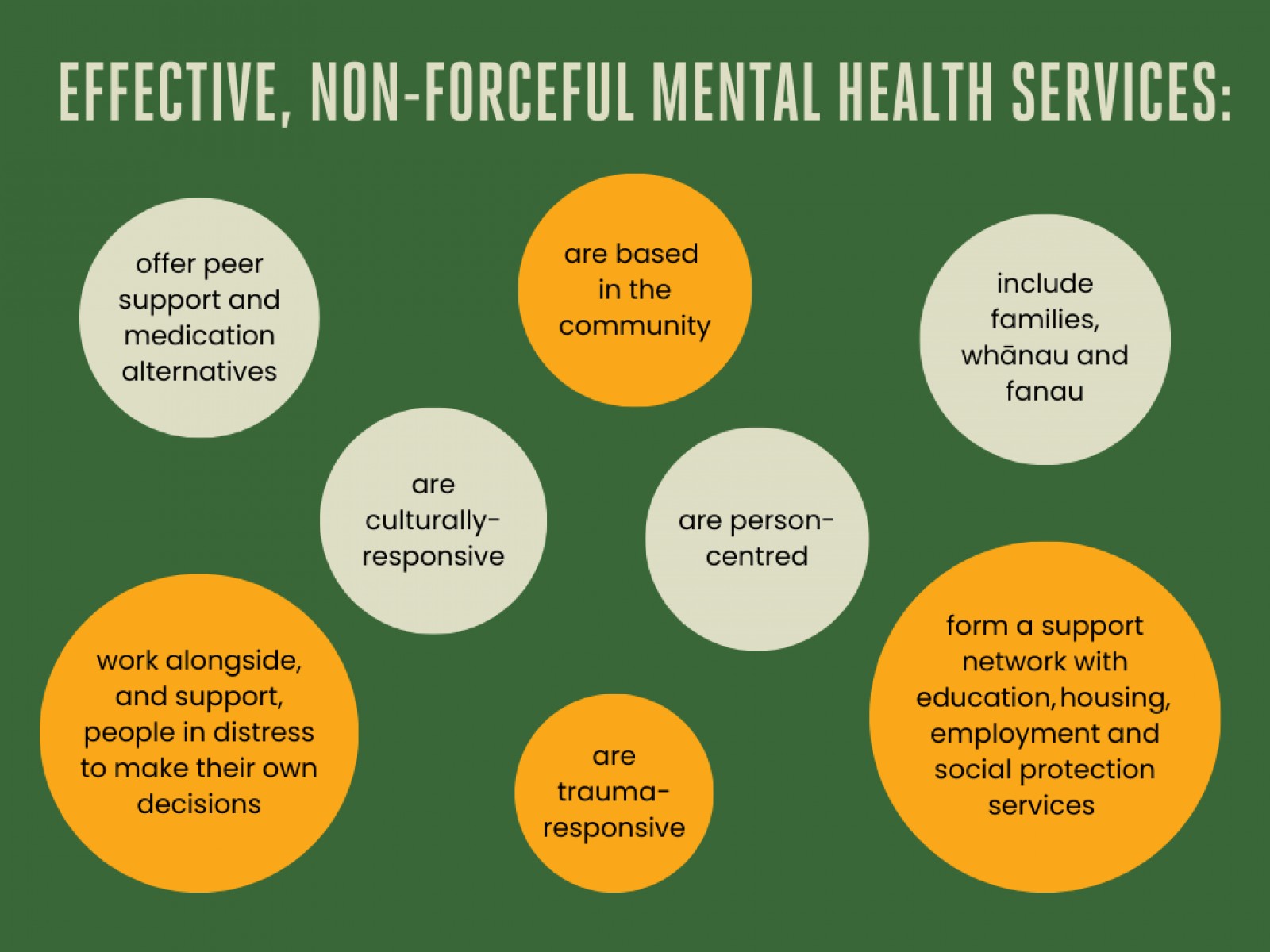
“The strengths and innate wisdom those of us who have been under the Mental Health Act carry within are far greater than the deficit and illness-based lens through which that law views us.”
- Kerri Butler, Māori lived experience leader
Aotearoa New Zealand has one of the highest rates of forced mental health treatment in the world. Even disregarding the harm it causes, there’s little evidence this forced mental health treatment is effective or produces good mental health outcomes. It’s also costly to implement and run.
It doesn’t have to be this way. We know a better mental health law and system are achievable, because examples already exist both here and in other countries.
These many effective alternatives to forced mental health treatment are already thriving, and producing better outcomes — they just need more funding and support to become the norm.
What does a better Mental Health Act, and mental health system, look like?
Watch our video above to see how we believe our nation’s mental health law and system should change. All our recommendations are backed by evidence, research, and what we hear from New Zealanders every day.

While changing our mental health law is super important, it won’t be a magic wand to change our mental health system as a whole. To change our mental health system, we also need changes to:
- mental health care practices
- levels of resourcing and staffing
- how some clinicians and the public think about people with significant mental distress or illness. Changing these negative attitudes involves negating myths that people with significant mental distress are an innate risk to the public and need to be locked up, or that being under the Mental Health Act always keeps people safe. These myths can be potent, and will prevent us from moving towards safer, and more empowering, mental health care.
Examples of thriving, non-forceful mental health services
Below are some examples of alternatives to forced mental health treatment already thriving in practice, and producing better outcomes, both here and overseas. With more funding and support, services like these can become the norm.
What characteristics do effective, non-forceful mental health services have in common?
Mental health services with the characteristics below produce better outcomes for people in distress, and help keep New Zealanders out of the revolving door of mental health services.

Feeling inspired? Read our case studies below to learn more about these successful alternatives, or click the button below to have your say on how the Mental Health Act should change before midnight on Friday, 20 December 2024.
Staying safe
Talking about the Mental Health Act may be upsetting or triggering — a valid and understandable response.
If you or someone you know has immediate safety concerns, please dial 111 or contact your local mental health crisis assessment team, which you can find on our Helplines page below.
